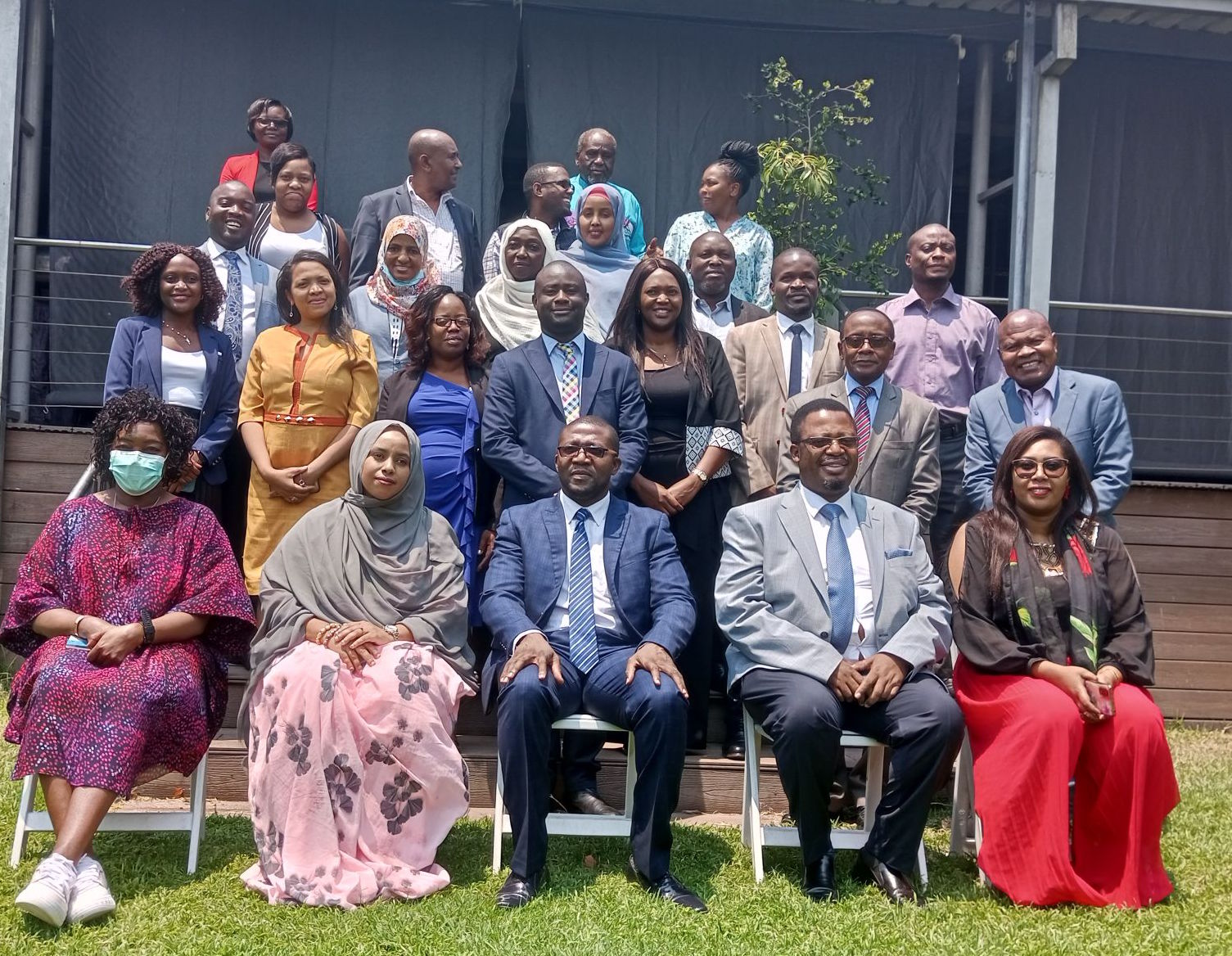|
Getting your Trinity Audio player ready...
|
The Common Market for Eastern and Southern Africa (COMESA) is holding a Regional Preparatory Workshop of the Twenty-Seventh Conference of Parties (COP27) to be held in Egypt.
Held in Zimbabwe, the regional meeting is deliberating on the key issues related to the upcoming COP27.
In his welcome remarks, Hon Mangaliso Ndhovu, the Minister of Environment, Climate, Tourism and Hospitality Industry said the meeting comes against a backdrop of numerous disruptions in the region’s socioeconomic fabric.
“Droughts are severely reducing agricultural output and hydroelectric power generation whilst tropical cyclones are causing infrastructure damage, forced migration, and loss of life in some parts of the region. Sea level rise is threatening coastal infrastructures such as ports, cities, and tourism establishments. These are already having severe impacts on the health, well-being, and incomes of the population.
“At the same time, it is important to acknowledge that the implementation of the UNFCCC and the Paris Agreement requires the region to update its socio-economic policies and implement measures that direct financial flows towards low carbon and climate resilient development. The region expects the impacts of response measures to result in stranded natural resources and economic assets and its policies should respond to the associated challenges,” Hon Ndhlovu said.
All Member States of COMESA are signatories to the Paris Agreement and the United Nations Framework Convention on Climate Change and have since submitted their Nationally Determined Contributions (NDCs) to the UNFCCC Secretariat.COMESA Secretariat has an observer status to the UNFCCC processes and is a strategic partner to the UNFCCC Secretariat in Bonn, Germany.
COMESA Secretariat and its Member States both plan to participate in the forthcoming COP27 in sessions to showcase the milestones, achievements, and lessons learned from the implementation of their climate change programs in the region. To ensure that the interests of African countries are adequately and fairly reflected in the ongoing climate change negotiations, it is imperative that African countries engage effectively in intergovernmental climate change negotiations, decision-making processes, and eventual implementation of the decisions taken.
“COMESA is cognisant that Regional Economic Communities (RECs) have a critical role to play in supporting solutions to transboundary issues related to a changing climate given their ability to pool existing knowledge and resources, leverage local and national policies, and give a voice and robust bargaining position to African countries at international negotiations. As part of the preparations for COP 27, the Common Market for Eastern and Southern Africa Secretariat which is a beneficiary of the EU under ACP’s Global Climate Change Alliance Plus (GCCA+) jointly organised this Pre-COP27 technical meeting with the Government of Zimbabwe to identify the most strategic issues for the COMESA Member States and work out regional priorities and positions,” said Edith Tibahwa, the Programme Manager, Climate Change Programme at COMESA.
The regional Pre-COP27 technical preparatory meeting (6-7 October 2022 in Harare, Zimbabwe) is meant to enable Member States to develop strategic regional priorities and critical thematic issues for submission to the African Group of Negotiators(AGN) and inclusion in the negotiating texts of the global discussions. The meeting will produce a COMESA Regional Position Paper for COP27.
The meeting is discussing critical outstanding issues arising from Bonn Intercessions which include, inter alia, long-term climate financing beyond $100 billion per year till 2025 pledge, global goal on adaptation(GGA), the status of loss and damage and its financing modalities, preparations and requirements for global stocktake, the status of continental and global efforts towards NetZero by 2050 targets.
Discussions are also focusing on the latest scientific report of the IPCC focussing on implications for Africa and the COMESA region vis-à-vis adaptation, mitigation and meeting the NDCs and Paris Agreement goal of 1.5 degrees Celcius.
Spotlight is also on the progress made in complying with the provisions of the Paris Agreement as well as outcomes from COP26 with a special focus on the New Market Mechanisms, the Declaration on Forests and the Global Methane Pledge, coal use phase down, and matters on the UNFCCC COP27 agenda that have bearing on the COMESA Member States.
Also under the microscope are the policy priorities in the COMESA Region to inform a regional position paper and issues of regional importance for Member States to deliver on the Paris Agreement and feed into COP deliberations.
The member states are developing one COMESA Climate Change position paper to guide negotiations during the forthcoming COP27. There is a discussion on the Enhanced Transparency Framework of the actions and reporting on the Paris agreement; coupled with unpacking and interpreting the implications of the specific reporting guidelines from the preparations for the Implementation of the Paris Agreement.
Participants are also identifying and distilling African and COMESA priorities and thematic issues for strengthening resource materials for negotiators. The meeting is also covering the status of negotiations and implementation of NDCs in the COMESA Member States.
The COMESA Climate Change Regional Resilience Framework recognises the region’s vulnerability to the impacts of climate change. It calls upon the region to enhance its early warning systems and mechanisms for early recovery; private sector involvement and risk financing for loss and damage; informed risk regulation across the whole COMESA Region and; decisions and leadership informed by knowledge and innovation.
Climate change continues to have a profound impact on the region’s trade, economy, and ability to compete internationally. Some of COMESA’s comparative advantages in agriculture, energy production, and tourism are directly threatened as a result of climate change.
The meeting was attended by representatives from Burundi, Comoros, Djibouti, Eswatini, Ethiopia, Kenya, Madagascar, Malawi, Rwanda, Sudan, Uganda, Zambia, and Zimbabwe






